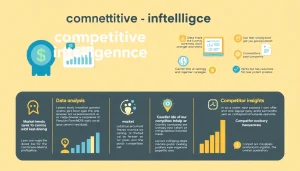Boosting Sales Efficiency: The Role of Sales AI in Modern Business Strategies
Understanding Sales AI: Definition and Importance
What is Sales AI?
Sales AI refers to the application of artificial intelligence technologies to enhance and automate sales processes. This includes predictive analytics, natural language processing, and machine learning algorithms designed to support sales teams in identifying potential leads, improving customer interactions, and forecasting sales trends. Sales AI tools analyze vast amounts of data to derive insights that help sales professionals make informed decisions, optimize their strategies, and ultimately drive revenue growth.
The Role of AI in Sales Strategies
AI plays a pivotal role in modern sales strategies by integrating data-driven insights with human intuition. By processing historical data, Sales AI can identify patterns that may not be immediately obvious, allowing sales teams to tailor their approaches to individual customers. This enhances personalization, which is critical in today’s competitive market. AI provides sales representatives with actionable insights, enabling them to focus their efforts on leads with the highest potential. Moreover, AI can automate many routine tasks, freeing up valuable time for sales teams to engage in more strategic activities.
Benefits of Implementing Sales AI Solutions
Implementing Sales AI solutions can yield numerous benefits, including:
- Increased Efficiency: Automating repetitive tasks such as data entry, email follow-ups, and lead scoring allows sales representatives to concentrate on high-value activities.
- Enhanced Customer Insights: Sales AI provides real-time insights into customer behavior, preferences, and engagement patterns, enabling personalized communication and offers.
- Improved Sales Forecasting: Predictive analytics helps sales teams anticipate customer needs and market changes, improving revenue projections and inventory management.
- Higher Conversion Rates: By effectively identifying qualified leads and optimizing sales pitches, AI can significantly boost conversion rates.
Key Features of Sales AI Tools
Automation of Repetitive Tasks
One of the most valuable features of Sales AI tools is their ability to automate mundane tasks. Automating administrative duties such as CRM updates, data entry, and follow-up emails can drastically reduce the time sales teams spend on non-sales activities. For instance, AI-powered chatbots can engage customers on websites or social media platforms, answering common inquiries and collecting information for sales representatives without human intervention.
Real-Time Customer Insights
AI is instrumental in providing real-time insights into customer behavior. By analyzing interactions across multiple channels, Sales AI identifies trends and preferences that sales teams can leverage to personalize their messaging. For instance, knowing which emails generate the most engagement can help sales professionals tailor their communication strategies. Tools like Sales AI can synthesize information from various sources to present a comprehensive view of each customer, enabling better-targeted sales tactics.
Predictive Analytics for Sales Forecasting
Predictive analytics uses historical data to forecast future sales trends. By leveraging machine learning algorithms, Sales AI tools can analyze past sales data and external factors, such as market conditions and consumer behavior, to predict future sales opportunities. This capability allows businesses to make informed decisions regarding inventory management, staffing, and budget allocations, ensuring they are prepared to meet demand effectively.
Choosing the Right Sales AI Solution
Factors to Consider When Selecting a Tool
When selecting a Sales AI tool, businesses should consider several factors, including:
- Integration: The selected tool should integrate seamlessly with existing systems such as CRM and marketing platforms.
- Scalability: Choose a solution that can grow with your business and handle increasing amounts of data and operations.
- User-Friendliness: A user-friendly interface is crucial to ensure that staff can utilize the tool effectively without extensive training.
- Vendor Support: Reliable vendor support can help businesses resolve issues quickly and maximize the tool’s usability.
Comparing the Top Sales AI Solutions
Various Sales AI solutions are available, each tailored to different business needs. Solutions like Salesforce AI and Gong leverage extensive data analytics to provide comprehensive insights into sales processes. Meanwhile, platforms like Dialpad emphasize AI-driven customer interactions, enhancing communication among sales teams and clients. When comparing tools, it’s essential to assess how each solution aligns with your business objectives and the specific needs of your sales team.
User Reviews and Case Studies
User reviews and case studies can provide invaluable insights into the effectiveness of Sales AI solutions. Businesses can learn from the experiences of others to understand the pros and cons of specific tools. For instance, a case study illustrating how a SaaS company utilized predictive analytics to improve its sales funnel could provide context for its effectiveness. Additionally, examining user reviews on platforms like G2 or Capterra can uncover common pain points and highlight the best user experiences.
Best Practices for Leveraging Sales AI
Integrating AI into Existing Workflows
Successful integration of Sales AI into existing workflows starts with assessing current processes and identifying areas where AI can add value. Consider creating pilot programs that allow teams to utilize AI in specific areas, such as lead scoring or customer interactions. Gradually expanding AI capabilities while ensuring staff are comfortable with the technology will foster a culture of adaptation and maximize the benefits of AI.
Training Staff for Effective Use
Training is essential for maximizing the effectiveness of Sales AI tools. Organizations should provide ongoing training sessions to educate staff about the capabilities and best practices for using these tools. Role-playing scenarios can help teams practice using AI-driven insights in real sales situations. Additionally, fostering a culture that encourages experimentation and feedback will help employees gain confidence in utilizing AI in their sales processes.
Measuring ROI from Sales AI
Measuring the return on investment (ROI) from Sales AI initiatives is critical for assessing their impact. Key performance indicators (KPIs) such as conversion rates, average deal size, and overall sales growth should be tracked before and after implementing AI tools. Businesses should also evaluate improvements in efficiency, such as time saved on administrative tasks, which can be translated into increased productive hours for sales representatives.
Future Trends in Sales AI Technology
Emerging Innovations and Capabilities
The landscape of Sales AI is continuously evolving, with emerging technologies reshaping how sales teams operate. Innovations in natural language processing are enhancing AI’s ability to understand and interact with customers more effectively. Furthermore, advancements in machine learning algorithms allow for even more accurate predictions and deeper insights into customer behavior. As these technologies evolve, they promise to deliver tools that are even more intuitive and powerful.
The Impact of AI on Sales Jobs and Skills
While sales AI offers numerous advantages, it also raises concerns about the future of sales jobs. As automation performs more tasks traditionally handled by humans, the role of sales professionals is shifting towards becoming strategic consultants and relationship managers. To adapt, sales teams will need to develop new skills, such as emotional intelligence and complex problem-solving, to remain relevant in an AI-driven environment.
Preparing for the Future of Sales Operations
Organizations must proactively prepare for the future by embracing transformative technologies. This includes investing in employee training and development to ensure that staff are equipped with the skills needed to leverage AI tools effectively. Additionally, fostering a culture of innovation and embracing change will help organizations to remain competitive as they navigate the evolving sales landscape. The future of sales lies not only in technology adoption but also in the ability to blend human intelligence with machine efficiency.



